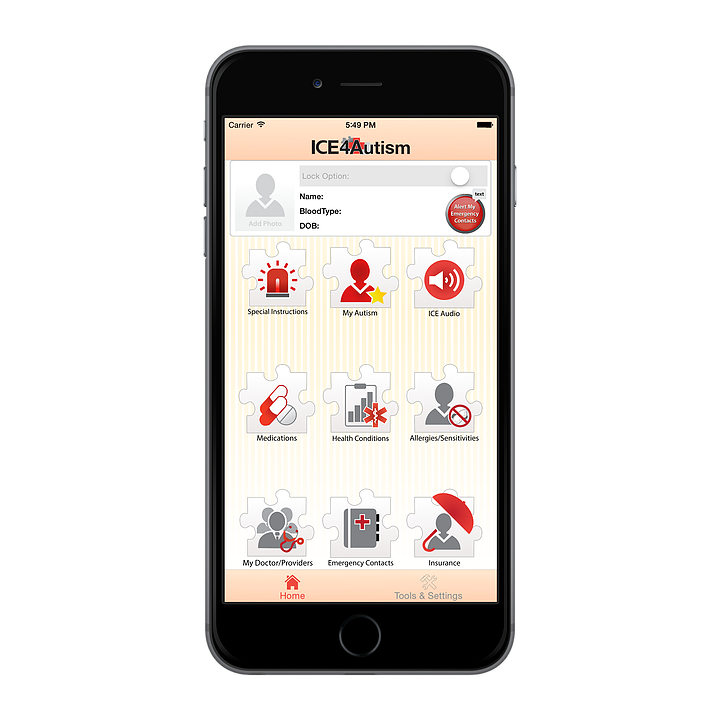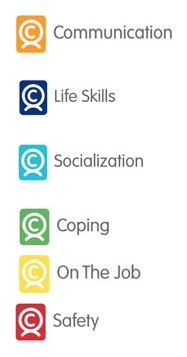Nearly everyone is familiar with the traditional medical ID bracelet, which is a simple way to alert people to a medical condition if they interact with your loved one—especially in an emergency situation. The best known organization, MedicAlert, allows users to maintain a list of key contacts and medications that can be accessed by emergency personnel using a serial number on the back of the bracelet. Still, as the saying goes, “If you’ve met one person with autism, you’ve met one person with autism.” Because everyone on the spectrum is unique, providing more detailed information in an emergency could make a real difference.
With the advent of pocket-size devices that contain the knowledge of the world (i.e. smartphones), it’s not surprising a number of app developers have come up with apps to help share medical information about an individual with first responders on the spot.
One autism-specific example is ICE4Autism (“in case of emergency”). Family members and individuals on the autism spectrum developed ICE4Autism, and it allows the user to input a variety of pertinent information, such as special instructions (written and/or a pre-recorded spoken statement), medications, other health conditions, allergies, doctor and family contact information, and even insurance coverage. Its “Alert my emergency contacts” button immediately notifies a pre-defined list of people. It also allows you to set up a special lock screen, so that even when the phone is locked the basic information is still accessible, as well as your special instructions message. ICE4Autism is currently only available for Apple devices, but the website says that they are developing an Android-compatible version. ICE4Autism is only $1.99.
Another app, Emergency Chat, offers a simple interface for typed communication with a good Samaritan or first responder if—due to anxiety, sensory overload, or anything else—a person becomes temporarily non-verbal. It is available for Android and iOS. Its main screen contains a pre-typed, customizable message. The message could describe a sensory overload meltdown and direct the person reading to click to use the chat capability. This app could also be useful for individuals who experience asthma attacks, incapacitating migraines, or anxiety attacks.
QuickCues is an app that is more appropriate for use before an emergency. It contains several modules with “social scripts,” suggestions of how to respond to various situations. One of the modules focuses on safety and includes scripts about asking for help, handling money, being aware of your surroundings, and being approached by strangers. The other modules are Communication, Life Skills, Socialization, Coping, and On the Job.
Consider whether one or more of these apps might be a good fit for your family and your loved one with special needs. They offer an additional layer of safety to provide important information to first responders and facilitate communication during an emergency.
Next… what Maryland is doing to promote safety and inclusion for individuals with developmental disabilities.









